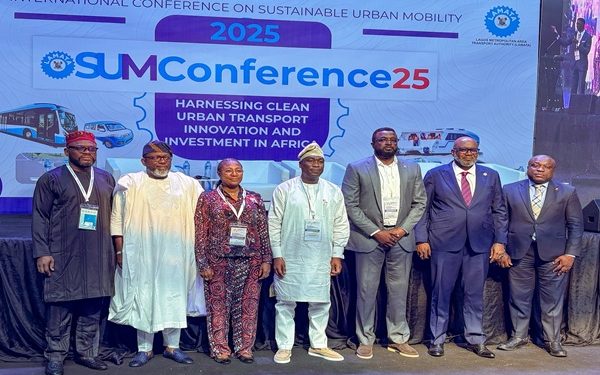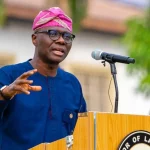Lagos has reinforced its leadership in Africa’s urban mobility transformation as it hosts the 2025 International Conference on Sustainable Urban Mobility (SUMConference25), organised by the Lagos Metropolitan Area Transport Authority (LAMATA). This year’s summit, themed “Harnessing Clean Urban Transport Innovation and Investment in Africa,” is focused on advancing climate-smart transportation while expanding local business participation across the continent.
Opening proceedings, Governor Babajide Sanwo-Olu, represented by his deputy, stressed the strategic importance of sustainable transport in driving economic inclusion, reducing pollution, and improving quality of life in African cities. He noted that for Africa to remain competitive, its cities must embrace cleaner technologies that support people movement, trade, and industrial growth. “We must build systems that are not just modern, but human-centered and built for the future economy,” he said.
LAMATA Managing Director, Engr. Abimbola Akinajo, emphasised that Lagos is moving beyond theory into implementation. She highlighted projects already underway, including the integration of electric and CNG-powered buses into the Bus Rapid Transit (BRT) system, expansion of rail corridors, and improved waterways transport. According to her, sustainable mobility is no longer an aspiration, but an economic and environmental imperative. “Sustainable mobility is both achievable and profitable,” she said, calling on African cities to align policy with innovation.
The conference draws delegates from more than 12 African countries, international investors, and global organisations such as the African Development Bank (AfDB) and UN-Habitat. Discussions focus on financing models, carbon credits, technology partnerships, and how cities can attract green infrastructure capital.
A growing theme emerging from the summit is the role of small and medium-sized enterprises (SMEs). Akinajo underscored that local businesses stand to gain significantly from the shift to clean transport — from manufacturing spare parts and components, to developing software for smart ticketing, to maintaining electric fleets. “Africa cannot afford to import sustainability. We must build it locally,” she said.
Industry experts at the event noted that sustainable mobility could create a new class of indigenous transport entrepreneurs and green manufacturers, provided governments establish supportive policies, grant access to finance, and develop local capacity. Opportunities exist in vehicle assembly, battery recycling, charging infrastructure, logistics services, and digital mobility platforms.
Delegates also examined the challenges facing African cities, including high upfront costs, lack of charging infrastructure, fragmented regulation, and the dominance of informal transport operators. However, stakeholders insisted that inclusion is crucial, any policy must integrate existing transport workers and local suppliers to ensure a just transition.
For many, Lagos is setting a template by aligning transport reform with industrial policy. The city’s approach aims to cut emissions, decongest roads, and stimulate a green economy that creates jobs and supports homegrown innovation.
As African governments seek resilient pathways in the face of climate change and rising fuel prices, Lagos’ clean mobility agenda is being seen as a continental blueprint, one that blends environmental responsibility with economic opportunity.










